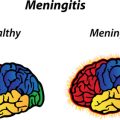Introduction: Setting the Scene in the UK
In recent years, the landscape of physical rehabilitation across the UK has been experiencing a significant shift. Traditionally, rehabilitation programmes have focused heavily on restoring physical function after injury, surgery, or illness. However, there is now a growing awareness among healthcare professionals and patients alike that mental health plays an equally crucial role in the recovery journey. More NHS trusts, private clinics, and community services are beginning to integrate psychological support into their rehab pathways. This change reflects not only emerging research but also the lived experiences of countless individuals navigating their way back to health. The recognition of mental health as a key factor in successful rehabilitation is transforming how care is delivered across the UK, fostering more holistic approaches that address both mind and body for better long-term outcomes.
2. The Interconnectedness of Mind and Body
When it comes to physical rehabilitation, particularly within the UK’s NHS framework, the relationship between mental health and physical recovery is undeniable. Scientific research increasingly highlights that our mental state plays a pivotal role in how effectively we recover from injuries or manage chronic conditions. For instance, studies published by the British Journal of Sports Medicine and NHS Digital reports show that individuals with higher levels of anxiety or depression often experience slower progress in their physiotherapy programmes. This isn’t just an academic observation; many patients and clinicians across the UK have witnessed first-hand how motivation, mood, and mindset can shape day-to-day rehabilitation outcomes.
Scientific Evidence in the NHS Context
The NHS recognises this mind-body link through various integrated care pathways. For example, cognitive behavioural therapy (CBT) is often offered alongside traditional physiotherapy for conditions like chronic back pain. The rationale is simple: addressing psychological barriers such as fear of movement or low self-esteem can unlock better participation and adherence to rehab plans. The below table summarises some key findings from UK-based research:
| Factor | Impact on Physical Rehabilitation | NHS Initiatives |
|---|---|---|
| Depression | Reduced engagement, slower progress | IAPT services linked with MSK clinics |
| Anxiety | Increased pain perception, avoidance behaviour | Pain management programmes including psychological support |
| Positive Mindset | Improved motivation and adherence | Patient education & peer support groups |
Practical Experience from UK Rehabilitation Settings
On the ground, physiotherapists, occupational therapists, and nurses frequently highlight that patients who receive mental health support alongside physical treatment are more likely to stick with challenging exercise routines and attend appointments regularly. In my own work within NHS rehabilitation teams, I’ve seen how tailored encouragement—whether through counselling referrals or simply building trust—can turn frustration into progress. It’s not just about fixing a knee or a hip; it’s about empowering people to believe in their ability to recover.
The Everyday Reality for Patients and Practitioners
For many Britons navigating the NHS system, acknowledging mental health as a core component of rehab means their journey feels more holistic—and less isolating. While time pressures remain a challenge in busy clinics, integrating psychological care is increasingly viewed as essential rather than optional for optimising recovery outcomes.

3. Barriers to Integrating Mental Health Support
When it comes to blending mental health support into physical rehabilitation in the UK, several unique challenges come into play. Culturally, stigma surrounding mental health remains stubbornly present, even as awareness grows. Many people still hesitate to discuss their struggles openly, fearing judgement or misunderstanding—this is especially true in more traditional or rural British communities where a “stiff upper lip” mentality persists. This cultural reluctance can make it tough for patients to access the psychological help that could make all the difference during their physical recovery.
Systemically, the structure of the NHS presents its own hurdles. Despite best intentions, there are long waiting lists for both mental health and rehabilitation services. Patients often find themselves waiting months for assessments or therapy sessions, which can slow down overall recovery. The fragmentation between physical and mental health services means that communication between professionals isn’t always seamless, leading to missed opportunities for integrated care.
Logistically, geographical disparities across the UK create unequal access to mental health support within rehabilitation pathways. Urban centres like London or Manchester might have more comprehensive services, but in rural areas—from the Scottish Highlands to Cornwall—patients may have to travel considerable distances or rely on limited local resources. Digital solutions like telehealth have started to bridge some of these gaps, but not everyone has reliable internet or feels comfortable with remote appointments.
Tackling these barriers requires a multi-pronged approach: ongoing education to reduce stigma, policy reform to address systemic bottlenecks, and investment in both face-to-face and digital support options to ensure no one is left behind—regardless of postcode. By understanding and addressing these UK-specific challenges, we can pave the way for truly holistic rehabilitation that puts mental health on equal footing with physical recovery.
4. Proven Strategies and Local Innovations
When it comes to integrating mental health into physical rehabilitation, the UK has developed a range of effective approaches that address both mind and body as part of a holistic recovery journey. Below, I’ll share some proven strategies and local innovations that have made a genuine impact in practice.
Multidisciplinary Teams: The Power of Collaboration
One standout feature of the UK’s approach is the widespread use of multidisciplinary teams within the NHS and private sectors. These teams typically include physiotherapists, occupational therapists, psychologists, nurses, and social workers who work together to create tailored rehabilitation plans. This collaborative model ensures that psychological wellbeing is not treated as an afterthought but as a core component of every patient’s recovery.
Key Roles Within Multidisciplinary Teams
| Role | Main Contribution |
|---|---|
| Physiotherapist | Physical recovery, pain management, goal setting |
| Clinical Psychologist | Mental resilience, coping strategies, trauma support |
| Occupational Therapist | Daily living adaptation, confidence building |
| Nurse/Social Worker | Ongoing support, family liaison, resources navigation |
Community-Based Initiatives: Taking Recovery Beyond Hospital Walls
The UK also champions community-based programmes that blend physical rehab with mental health support. Local charities and NHS Trusts often run group exercise classes, peer support sessions, and gardening clubs—providing safe spaces for people to rebuild both their bodies and social confidence. Initiatives like “Walking for Health” or “Men in Sheds” reflect the British knack for practical solutions and community spirit.
Case Study: A London Borough Initiative
In one London borough, a partnership between local GPs and community centres saw the launch of an integrated rehab programme combining gentle yoga, mindfulness workshops, and practical skills training. Over six months, participants reported improved mood, reduced isolation, and better adherence to their physical rehab routines—a testament to the effectiveness of locally tailored solutions.
A Personal Note from Experience
Having worked alongside such teams myself, I’ve seen firsthand how addressing anxiety or low mood can unlock motivation and progress in physical therapy. When people feel heard and supported holistically, they’re far more likely to stick with challenging rehab plans—even on tough days.
5. Personal Experience: Reflections from the Field
Drawing on real-world experiences from across the UK, it becomes clear that integrating mental health into physical rehabilitation is both rewarding and complex. For instance, Sarah, a physiotherapist working in an NHS hospital in Manchester, shared how patients recovering from strokes often made faster progress when supported by a psychologist alongside their physical therapy sessions. She noted, “Some patients found it easier to engage in their exercises once we’d addressed their anxieties about recovery.”
On the other hand, John, who underwent rehabilitation after a serious car accident in London, recounted the importance of having someone acknowledge his emotional struggles. He said, “It wasn’t just about learning to walk again; it was about coping with frustration and fear. My mental state was as much a part of rehab as my body.” His story highlights how valuing mental health can foster resilience and motivation during the often lengthy recovery process.
However, many professionals point out the challenges faced on the ground. A senior occupational therapist in Birmingham mentioned that while there is growing awareness, time pressures and limited resources sometimes mean mental health is not given enough attention. She explained, “We know it makes a difference, but with caseloads being what they are, it’s tough to consistently provide holistic care.”
In community settings, collaboration between GPs, mental health nurses, and rehabilitation teams has shown positive results. One service user in Glasgow described how group sessions that addressed both mood and mobility helped him feel less isolated and more hopeful about regaining independence.
These stories from across the UK reinforce that prioritising mental health in physical rehabilitation brings tangible benefits but also demands ongoing commitment and system-wide support. Listening to those on the front line—and those receiving care—reminds us that recovery is always a deeply personal journey shaped by both mind and body.
6. Moving Forward: Policy and Practice Recommendations
The growing recognition of the interplay between mental health and physical rehabilitation in the UK presents both opportunities and challenges for clinicians, policymakers, and service users. Drawing from recent NHS England initiatives such as the Long Term Plan and insights from research including the 2023 Royal College of Psychiatrists report on integrated care, it is clear that a more cohesive approach is needed. Below are actionable suggestions to advance the integration of mental health support within physical rehabilitation pathways across the UK.
Embed Mental Health Screening in Rehabilitation Pathways
Every patient entering physical rehabilitation should receive a standardised mental health screening as part of their initial assessment. This enables early identification of issues such as depression or anxiety, which can impede recovery, and ensures timely referral to appropriate support services. Clinicians should be trained in basic mental health awareness so they can confidently initiate these conversations without stigma.
Foster Interdisciplinary Teams
Integrated care teams—comprising physiotherapists, occupational therapists, psychologists, and mental health nurses—are already being piloted in several NHS Trusts with promising results. Expanding this model nationally would break down traditional silos, ensuring that patients receive holistic care tailored to both their physical and psychological needs. Regular interdisciplinary meetings and shared care plans should become standard practice.
Enhance Access to Digital Support Tools
The pandemic accelerated adoption of digital mental health tools like SilverCloud and IAPT online services. These platforms should be routinely offered alongside face-to-face rehabilitation, particularly to those facing geographical or mobility barriers. Commissioners must ensure digital literacy support is available so no one is left behind.
Invest in Staff Training and Wellbeing
Sustainable integration demands ongoing investment in staff training—not just one-off workshops but embedded professional development programmes on trauma-informed care, motivational interviewing, and resilience-building strategies. Supporting staff wellbeing is also crucial; after all, practitioners who feel valued and mentally healthy are better equipped to provide high-quality care.
Monitor Outcomes and Amplify Lived Experience Voices
Policy development must be informed by robust outcome measures that capture both physical gains and psychological wellbeing improvements. Service user feedback—especially from those with lived experience of dual recovery journeys—should shape service design at every level. The NHS People Plan highlights co-production as a key principle; local trusts should establish forums where patients and carers can directly influence priorities.
Conclusion: Towards Truly Integrated Care
The UK has made important strides towards recognising the vital role of mental health in physical rehabilitation, but there remains much to do. By embedding mental health support throughout rehab pathways, fostering collaboration across disciplines, investing in both digital innovation and workforce development, and prioritising patient voice, we can move closer to an NHS where no aspect of recovery is overlooked—and where every individual’s whole health truly matters.


